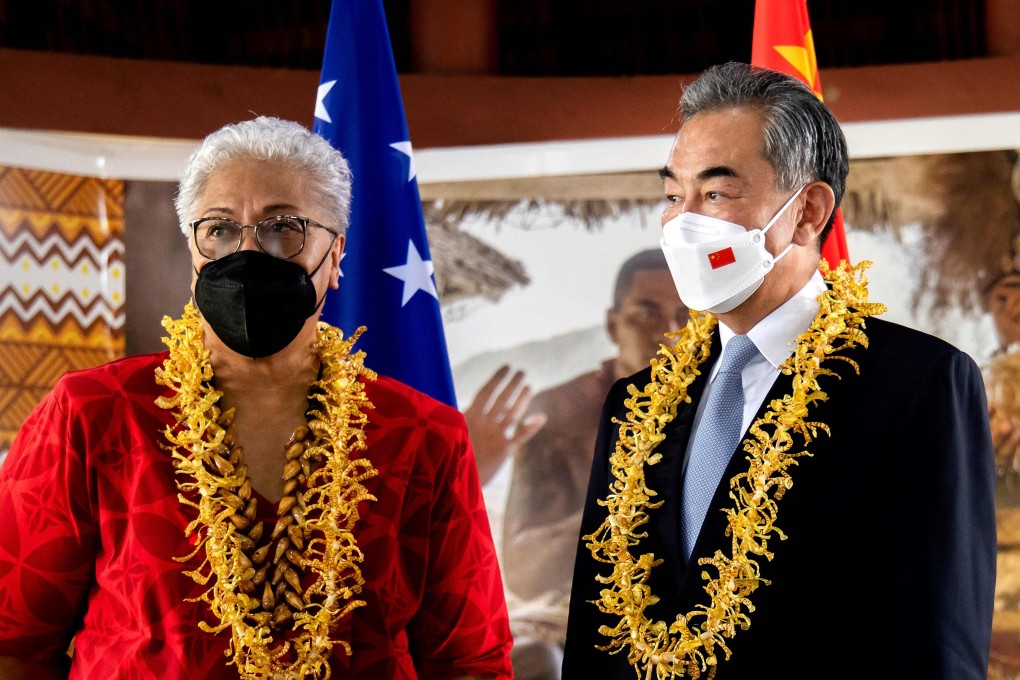Samoa signs bilateral agreement with China amid Beijing’s Pacific push
- The Samoan government said Chinese Foreign Minister Wang Yi and Samoan PM Fiame Naomi Mata’afa met and discussed ‘climate change, the pandemic, and peace and security’
- China will continue to provide infrastructural development support to various Samoan sectors and there would be a new framework for future projects ‘to be determined and mutually agreed’

The deal’s details are unclear, coming midway through a Chinese delegation’s eight-nation trip – but an earlier leaked draft agreement sent to several Pacific countries outlined plans to expand security and economic engagement. The mission has prompted Western leaders to urge regional counterparts to spurn any Chinese attempt to extend its security reach across the region.
A press release from the Samoan government confirmed that Chinese Foreign Minister Wang Yi and Samoan Prime Minister Fiame Naomi Mata’afa had met and discussed “climate change, the pandemic and peace and security”.
Local media were invited to witness the signing of a deal, but no questions were taken.
The statement said that China would continue to provide infrastructural development support to various Samoan sectors and there would be a new framework for future projects “to be determined and mutually agreed”.
“Samoa and the People’s Republic of China will continue to pursue greater collaboration that will deliver on joint interests and commitments,” the release said.
